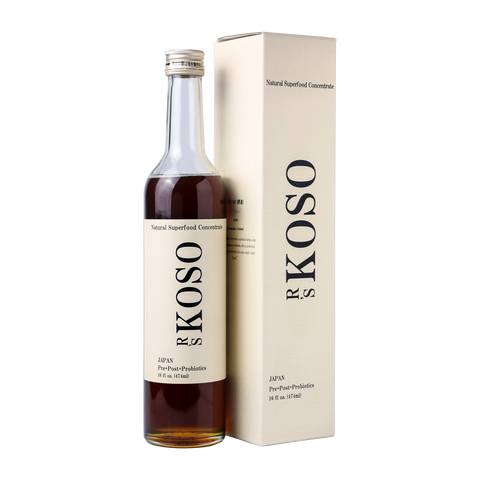Fermentation is a natural process that has been used for centuries to preserve food, enhance flavors, and improve nutritional content. At the heart of fermentation is the role of sugar, which is crucial for the growth and activity of beneficial microorganisms. These microorganisms, such as bacteria and yeast, use sugar as a source of energy to break down complex nutrients and produce beneficial compounds like short-chain fatty acids (SCFAs).
Why is Sugar Essential in Fermentation?
During fermentation, microorganisms metabolize sugars to generate energy and create various by-products that contribute to the flavor, texture, and health benefits of the fermented product. The sugars act as a food source for these microbes, allowing them to thrive and carry out their essential functions. Without sufficient sugar, the fermentation process can be incomplete or less effective, leading to a lower quality end product.
Scientific research supports the idea that sugars are fundamental to fermentation. For example, a study published in the Journal of Food Science highlights how sugars are critical in the production of organic acids, alcohols, and gases, which are vital in achieving the desired characteristics of fermented foods.
Moreover, sugar easily binds with water. When enough sugar is added to food, water in the food binds with the sugar. This reduces the amount of free water, which is what bacteria need to grow and thrive. As a result, the preservative effect increases.
The Choice of Sugar in Fermentation: Pure Brown Sugar vs. White Sugar
R's KOSO, a postbiotic-rich fermented juice made of more than 100 kinds of whole foods, takes the fermentation process a step further by using pure brown sugar (aka black sugar in Japan) instead of white sugar. This choice is not just about flavor but also about enhancing the nutritional profile of the final product.
Pure Brown Sugar's Nutritional Advantages
Mineral Content
Pure brown sugar is rich in minerals like calcium, potassium, iron, and magnesium. These minerals are naturally present in the sugarcane juice used to produce pure brown sugar and are retained during its less refined processing. In contrast, white sugar undergoes extensive refinement, stripping away these valuable nutrients.
Antioxidant Properties
Pure brown sugar contains higher levels of antioxidants compared to white sugar. These antioxidants help neutralize free radicals in the body, which can reduce oxidative stress and inflammation. The presence of antioxidants in pure brown sugar also supports the stability and longevity of the fermented product.
Enhanced Fermentation
The minerals and antioxidants in pure brown sugar may also contribute to a more robust fermentation process. These additional nutrients can support the growth and activity of beneficial microorganisms, leading to a richer and more effective fermentation.
Research published in the Journal of Agricultural and Food Chemistry has shown that the mineral content in pure brown sugar can positively influence microbial activity, enhancing the production of beneficial compounds during fermentation.
Is R's KOSO high in sugar?
In our fermentation process, we use a blend of fruits, vegetables, seaweed, mushrooms, and plants, which naturally contain sugar. To kickstart fermentation, we add a small amount of sugar (we use pure brown sugar), similar to how kombucha is made. Over the course of a year, nearly all sugars are converted into nutrients and glucose. We add Galacto-oligosaccharide, a prebiotic beneficial for gut health, at the end to balance the flavor. Glucose is an important energy source for our brain. The remaining glucose helps minimize the risks associated with fasting, making it safer for beginners and those fasting long-term.
Balancing Flavor with a Purpose: The Role of Galacto-Oligosaccharide
Galacto-oligosaccharide (GOS) offers a range of health benefits, particularly by modulating gut microbiota and boosting the immune system. It has been shown to reduce the severity of allergic skin conditions and improve calcium absorption and bone mineralization in postmenopausal women. Additionally, GOS is effective in alleviating lactose intolerance and preventing constipation. These combined benefits make GOS a powerful prebiotic that supports overall health, particularly gut health and enhances the body’s ability to absorb essential nutrients while promoting a healthy digestive system.
Conclusion
The use of pure brown sugar in the fermentation process, as seen in R's KOSO products, is a scientifically backed choice that not only enriches the nutritional content but also supports a more effective and beneficial fermentation process. By opting for pure brown sugar over white sugar, R's KOSO ensures that their products offer more than just the standard benefits of fermentation, providing consumers with a superior and health-conscious option.
Let’s get started!

